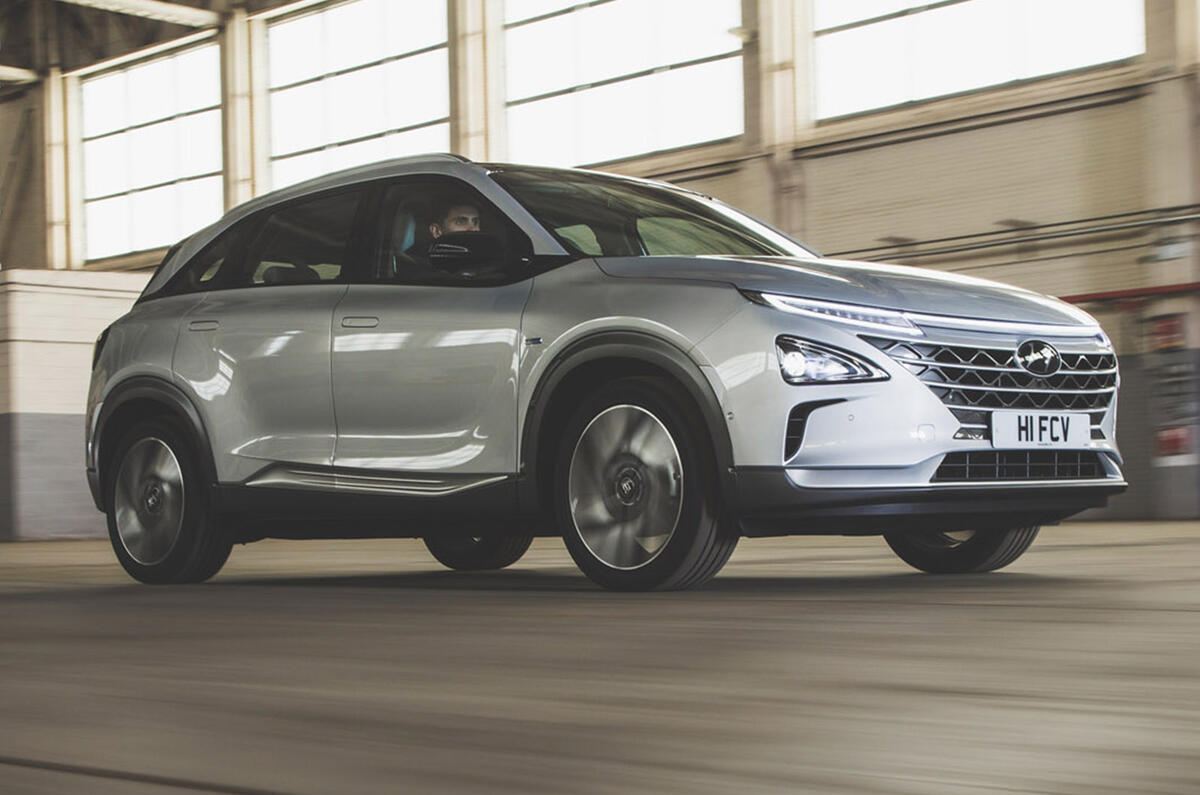It's strange, isn't it, that hydrogen is the most abundant fuel on Earth, yet its use in vehicles (rockets and a few fringe machines aside) remains the subject of so much debate?
If a journalist’s job is to seek out the truth and report it, I’m afraid that I’m going to disappoint you. Such is the depth of expertise and opinion on each side that it’s beyond my capabilities to draw a conclusion. It’s clear, though, that there’s worthy debate to be had.
On the one side you have Tesla boss Elon Musk, who described hydrogen’s use on the road as “mind-bogglingly stupid” in reference to the amounts of energy required to produce it. On the other you have Sae Hoon Kim, Hyundai’s head of fuel cell research since 2003, who said last year: “People will come to realise that hydrogen is the answer to emissions regulations.”
Let’s hear more from Musk: “Hydrogen is an energy storage mechanism. It’s not a source of energy. So you have to get that hydrogen from somewhere. Electrolysis is extremely inefficient as an energy process. If you take a solar panel and use the energy from that to charge a battery pack directly, compared to trying to split water, take the hydrogen, dump the oxygen, compress the hydrogen to an extremely high pressure and then put it in a car and run a fuel cell, it’s about half the efficiency. It’s terrible. It makes no sense.”
Back to Kim: “Right now, hydrogen is made as a by-product of fertiliser and oil refining. What makes this sector difficult is that the initial [investment] expense is very high. In the case of battery technology, all you need is an inverter. With fuel cells, there are a lot of other components that are needed. But both Hyundai and Toyota have strong confidence in hydrogen compared with other companies. Zero emissions is going to be very hard to achieve with just batteries.”
Listen to Musk and you will conclude the path that most governments have backed is the right one. Given the investment and time required to install infrastructure for charging EVs, the logic of betting on the technology that’s readier and more financially viable today is perfectly logical.
But what if Kim, whose view has been echoed by people at Honda and Toyota, is right? What if all that stands between hydrogen being the right answer is scale? What if hydrogen’s opportunity to achieve that scale has been cut off in the rush to take the easier path?
In all likelihood, the tide has turned. If hydrogen can’t prevail without scale, it seems that its proponents have lost the debate. But that doesn’t necessarily mean the right decisions have been made.
READ MORE
Hydrogen cars explained: the technology targeting a fuel-cell future




Join the debate
Add your comment
H2 is 3x more expensive than petrol per mile, BEV are 1/10 of the price of petrol.
98% of hydrogen is currently made by stream reformation of methane and releases huge amounts of CO2.
If the current global hydrogen use was made by electrolysis then it would require all the electricity generated by Europe, that's before you start to think about new uses.
BEV allow you to use power you could generate on your roof, HFCV mean you're swapping multinational oil corporations for multination chemical corporations.
The problem is, although hydrogen is common, it's all bound up in other materials. To extract it so we can use it to fuel things, requires lots of energy. So much energy to create, distribute and store at huge pressures and low temperatures that it's vastly more inefficient than just plugging in and using the electricty directly using the distribution grid that's been in place for a nearly a century now. No such H2 distribution grid exists.
Why not both?, in certain parts of the World, one or the other might be the better solution, Hydrogen can't be that much more expensive when you compare it to the prices of EV cars at the moment, plus, going even further in to the future, will Earths resources still provide our needs to produce power World?
Because that would be too logical and not divisive enough. We need to be polarizing to get clicks and comments!
Because:
1: Hydrogen is very silly reguarding storage and round trip efficiency. The advantages in range and refuelling are basically zero once you include charging from home and rapid charging.
2: This is a format war, the looser gets locked out. The adaptation required to make EVs work make the changeover costs to produce the hydrogen infrastructure excessive and unecessary.
If the world had begun a FCEV changeover in 2000 and half the worlds cars were FCEV there might be some debate around the costs to change over to BEVs. However I think the fact the BEVs have been able to supplant ICE vehicles with relatively little intervention due to the existance of the electricity grid would indicate that they would win in those circumstances.
They need electricity and despite Bonking Boris's bs we haven't got the generation or the distribution network for widescale bev adoption.
And that is before gas is phased out.
But Musk is spot on with the physics of hydrogen (no vested interested).
You can have both it is a free country afterall, its just people dont want a fool cell car.